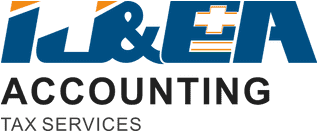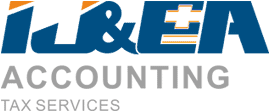Introduction
Tax season can feel like a hectic time of year. You’re scrambling to find receipts, puzzling over paperwork, and wracking your brains over financial records. However, it doesn’t have to be this way. With careful planning and helpful guidance, you can smoothly navigate tax season and potentially save some money along the way. So let’s dive into the world of tax planning and explore how to best organise your financial records.
Understanding Tax Season
Before we dive into the nuts and bolts of organising, let’s establish a solid understanding of tax season. It’s the period when individual taxpayers like you and me prepare financial statements and tax returns. Typically, the tax year runs from 1 July to 30 June. After this time, every taxpayer is expected to responsibly report their annual income, claim deductions and credits, and pay any taxes they owe before the due date, generally 31 October for self-lodged individual income tax return.
Importance of Organising Your Financial Records
Why bother with the organisation? Isn’t it easier to just shove all your receipts into a drawer and hope for the best? Not! A well-organised system of financial records can not only save you time and stress during tax season, but it can also save you money. Missed deductions and inaccuracies can cost you, and they’re far more likely if your financial records are in disarray.
Start Early
Be sure to start gathering your documents before the last minute. Begin by setting aside a dedicated space in your home or office for anything tax-related. This could be a file cabinet, a desk drawer, or even a box under your bed. The key is to have one place where you can easily store and retrieve documents as they come in. Remember, starting early reduces the rush, lessening the risk of errors.
Create a System
Consistency is crucial in record-keeping. Creating a system is like a long-term asset. Whether you prefer a physical approach (like a filing cabinet) or a digital one (like cloud storage), choose a method and stick with it. Arrange your documents by type (receipts, invoices, pay slips) and then by date. The easier it is for you to locate a specific document, the smoother your tax season will be.
Identify Important Documents
Knowing which documents are necessary for tax purposes can save you a lot of headaches. Key records include:
- Income documents
- Expense receipts: business-related or work-related
- Rental property documents: Mortgage interest statements, council rates, water rates etc.
- Investment documents: Dividend income statements, capital gain/loss related documents
Go Digital
In our modern world, opting for electronic documents can simplify the organisational process. Many companies offer the option to receive statements and bills electronically. You can easily organise these into folders on your computer or cloud storage, reducing physical clutter and making retrieval easier. Plus, it’s environmentally friendly!
Retain Your Records
Keep your records for at least five years. The Australian Taxation Office (ATO) may review your return if they suspect errors or omissions. Having your documents on hand will protect you in case of an audit.
Review Regularly
Once your system is in place, don’t forget about it until tax season rolls around. Set a reminder to review your records regularly, once a month or once a quarter. This can help you catch any errors or omissions early on and save you a world of trouble later.
Seek Professional Help
If all this seems overwhelming, remember that professional help is available. Qualified Accountants and registered tax agents can provide invaluable advice and services to help you easily organise your financial records or superannuation records and navigate tax season with ease. This will also streamline the process when preparing various types of financial statements / financial reporting, including profit and loss statements, statement of balance sheet and statement of cash flows.
Conclusion
Preparing for tax season doesn’t have to be a hassle. With some planning, organisation, and diligence, you can ensure a smooth journey through your financial documents and possibly even save some money. From understanding the significance of tax season to the importance of early preparation, creating a consistent system, identifying crucial documents, going digital, maintaining your records, and considering professional help, these steps provide a clear roadmap for tax season. So don’t wait—start organising your financial records today, and turn the tax season from a headache into a breeze!












